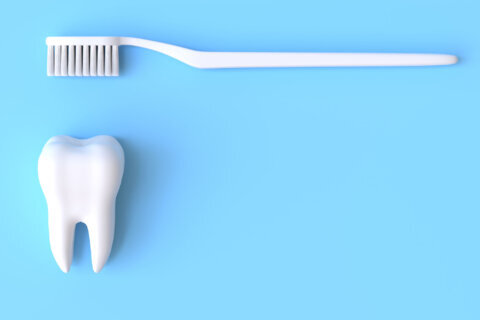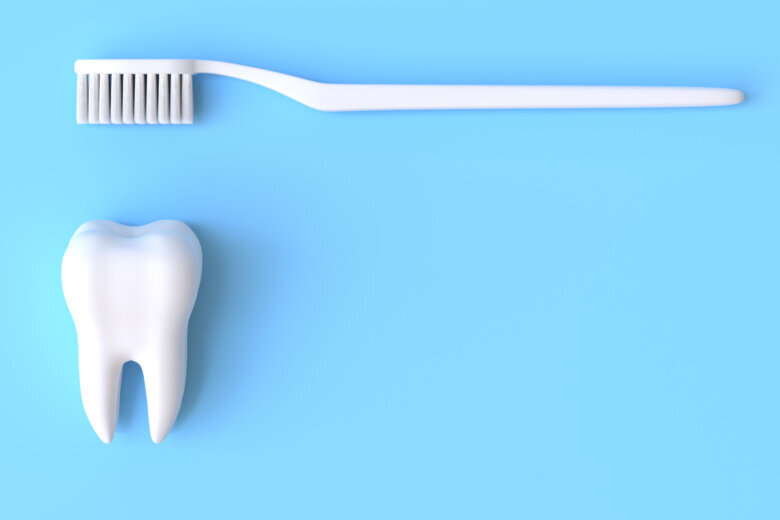
Looking to protect your teeth? You may be surprised to learn that some common habits that many people have may actually harm your teeth. If you find yourself doing any of these things on a regular basis, it’s time to change your ways for better oral health.
Here are the nine most common, and sometimes surprising, habits that are killing your teeth:
Teeth grinding and clenching
Teeth grinding, also called bruxism, refers to a side-to-side movement of the teeth, while clenching is when you hold your teeth in one position against each other, says Dr. Mirissa Price, an American Dental Association spokesperson and pediatric dentist with Cumberland Pediatric Dentistry and Orthodontics in Smyrna, Tennessee.
Some people grind or clench their teeth during the day, and that’s usually tied to anxiety or tension. Others perform this habit at night, so they aren’t even aware of it. Both children and adults can get in the habit of grinding or clenching teeth. Waking up with a headache or a sore jaw are possible signs of teeth grinding and clenching.
Grinding or clenching puts extra stress on teeth and can wear down the outer layer of your teeth, Price explains. This can change how your teeth look, and over time may cause tooth sensitivity, or even a tooth fracture. With clenching, you also may tighten your jaw muscles, and that can lead to jaw tenderness and muscle problems in the jaw.
If you know you grind your teeth during the day, talk to your dentist about how to break the habit. For grinding or clenching at night, ask if you can use a special mouth guard.
Chewing ice
Ice chewing can provide a cool feeling in the mouth while you’re drinking or after you finish a drink. Yet that seemingly harmless habit isn’t actually so innocent. Ice can actually be harder than your natural tooth, leading to chips and breaks, says Dr. Jonelle Anamelechi, a pediatric dentist with Children’s Choice Pediatric Dentistry and Orthodontics in Washington, D.C.
The regular habit of chewing ice can even cause pain and damage in children’s teeth, says Dr. Gerald J. Botko, president of the Academy of General Dentistry.
Plus, the extreme temperature change from ice can lead to cracks in your teeth, says Dr. Richard Wolfert, founder of The Tooth Boss dental practice in Weymouth, Massachusetts.
To break an ice-chewing habit, try to chill your beverages in advance in the fridge or freezer, or to drink from a straw.
Opening items with your teeth
Whether it’s a beer bottle top or a bag of chips, it may be tempting to use your chompers to get them open. Resist the urge.
“Do not use your teeth as tools,” Botko cautions. “Using your teeth as a bottle opener can cause chipping, breaking or fracture of your teeth.”
This is especially true if your teeth are already weakened from a large filling or wear and tear, Wolfert says. Cracked, fractured teeth can lead to tooth loss or extraction. Take the extra step to find a bottle opener, scissors or other tool to pry open whatever it is you’re using.
Thumb sucking
Thumb sucking is considered a normal habit in kids until about age three. After that time, this soothing habit can lead to permanent changes in the teeth and jaw, Price says.
This includes the teeth protruding too far forward on the top or causing an open bite where the teeth don’t meet. It also can contribute to a high arched palate — the palate is the roof of the mouth — leading to potential speech issues. Thumb sucking also can introduce germs into the mouth.
If your toddler or young child is still a thumb sucker, talk to their pediatrician or dentist for help. You can use sticker chart rewards for motivation to stop or try special bad-tasting nail polish to encourage them to halt the habit.
Constant snacking
If you like to nosh or drink sugary beverages throughout the day, you may want to rethink that habit. That’s because constant snacking allows sugar to breakdown and accumulate on your teeth. The same holds true for children who drink juice or milk throughout the day.
These habits put you at a higher risk for cavities because cavity-causing bacteria like to feast on leftover food and create an acid that attacks the outer shell of your teeth, Botko says.
A better strategy: Aim for balanced meals that help you feel fuller longer. Drink water between meals, and have your children do the same. Focus on low-sugar, low-fat snacks. When you do indulge in sugary snacks, drink water to help wash away the leftover food.
Brushing too hard
There’s a right and a wrong way to brush, and as it turns out, the wrong way can harm your teeth. Aggressive brushing can wear away the outer layer of your teeth called the enamel. It also can cause your gums to weaken, providing less support for your teeth, Price says. This can raise your risk of tooth sensitivity and cavities.
Hard brushing is a habit often found in kids, Anamelechi says. That’s because they may focus too much on the spots they can reach and go a little too hard on them.
To avoid these harms, use a soft-bristled toothbrush (manual or electric), and use the amount of pressure you can apply by holding your tooth brush with your thumb and index finger. Move the toothbrush in small back-and-forth strokes.
Not wearing a mouth guard during contact sports
If you have kids who play a contact sport and they don’t use a mouth guard, they could end up with cracked or missing teeth, Botko says. They should even wear a mouth guard during practice, he advises. Emphasize to your children the importance of wearing a mouth guard every time they play.
Nail biting
Do you bite your nails? It’s a habit you’ll want to break. Nail biting can damage the roots of the teeth and the bone holding the teeth in place, says Dr. Joi M. Freemont, founder of Freemont Dental in Hapeville, Georgia. It could even stop teeth from fully closing if you hold your fingers in the mouth for a long time period.
Some ways to stop nail biting:
— Wear thin gloves or a mask during daytime hours to help train you to not put your fingers in your mouth.
— Continuously apply hand sanitizer or lotion to your fingers so they’re unpalatable.
— Find other ways to occupy your hands, such as twiddling your thumbs or playing with a ball or elastic band.
Smoking
It may be no surprise that smoking is bad for your teeth. What may be surprising is just how much it can harm your teeth and mouth. Here are just some of the ways that smoking is bad for your oral health:
— It causes bad breath.
— It stains your teeth.
— It can make your immune system weaker. That increases the chance of gum disease. Smoking doubles your risk of gum disease compared with those who don’t smoke, according to the Centers for Disease Control and Prevention.
— You increase your risk of oral cancer.
When you think about smoking and oral health, don’t forget about the effects of cigarette alternatives like hookah. Hookahs frequently contain nicotine in amounts that aren’t regulated, and people tend to use them for longer time periods than cigarettes, Freemont says. Use of hookahs also can increase the risk for gum disease and oral cancer.
Both your doctor and dentist can provide strategies to help break the smoking habit.
Better habits for your teeth
To keep your teeth healthy and avoid the pitfalls of bad tooth habits, here are a few steps to follow:
— Make dental health a top priority, Freemont advises. If you have anything abnormal going on in your mouth, such as bleeding when you brush your teeth or pain in your mouth, let a dentist know. Treating problems early will keep them from getting worse or more expensive down the line.
— Brush your teeth for two minutes twice a day. Floss at least once a day.
— Talk to your doctor or dentist about any medical conditions you have or prescriptions you use, Freemont recommends. There are many health conditions or prescriptions that can affect your mouth. These may require more frequent visits to the dentist for exams and cleaning.
— Visit a dentist twice a year or as often as they recommend.
— Replace your toothbrush every three months, or more often if you’ve been sick.








